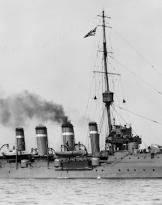In light of the previous articles, we have seen the ideological, pragmatic motivations and the development of the Korean nuclear program. In this perspective of clarification and in-depth analysis, it is opportune to conclude with an analysis of power relations in the area of the Chinese Sea, taking into account the role of Beijing and, in part, also that of Moscow.
North Korea has People's China as its main ally, which, according to journalists and scholars, uses Pyongyang as a sort of "buffer state" to keep pro-US governments and NATO away from its land borders. This condition allows Korea to have its back covered by Western military interventions, since a possible US attack would result in a Chinese reaction, both financial and military, which would inexorably lead to a full-scale war (with a further attached economic crisis) which the United States currently cannot afford. Furthermore, North Korea has an additional element of deterrence against the United States and its allies: the atomic bomb and intercontinental missiles. Although Kim Jong Un does not have even twenty nuclear bombs, they manage to have an inhibitory power with respect to the realization of Trump's threats of armed intervention. In fact, an American attack would be followed by the immediate launch of intercontinental missiles from Pyongyang, missiles - if you prefer - that cannot be entirely intercepted or shot down safely and that could cause a large number of victims in Asian countries allied to the US, like South Korea and Japan.
Given the obvious, it must be said that Washington probably has no real interest in seeing North Korea annihilated: it allows the Pentagon to keep around 37 thousand assets (May 2017 data) and an entire naval battle group , both in South Korea and Japan, thus legitimizing its military presence in the region.
Another important actor on the Asian geopolitical scene is obviously Russia, which is in an intermediate position between the two sides: it does not directly support the Pyongyang government but at the same time blocks the US attempts to attack the country. The Kremlin is trying to achieve, together with China, a mediator role between the two sides, in order to avoid an escalation, which would be detrimental to the commercial and political relations between the various actors.
Federico Gozzi
Also read: "North Korea and nuclear (1 / 3): ideological and historical premise"
Also read: "North Korea and nuclear (2 / 3): the historical development of the North Korean nuclear program"
(photo: US Air Force)












